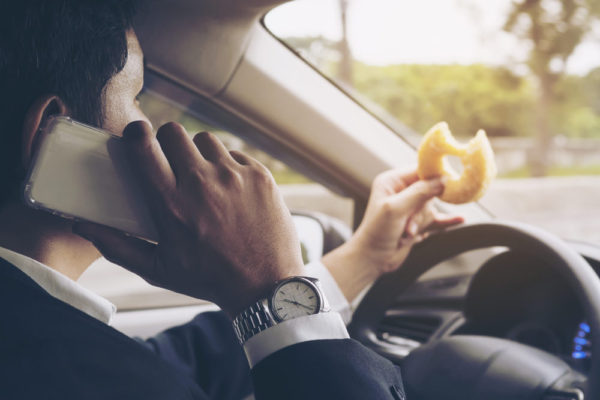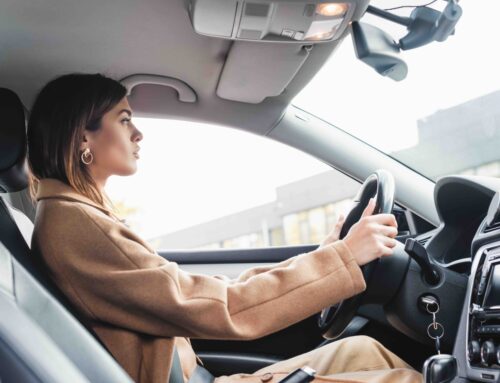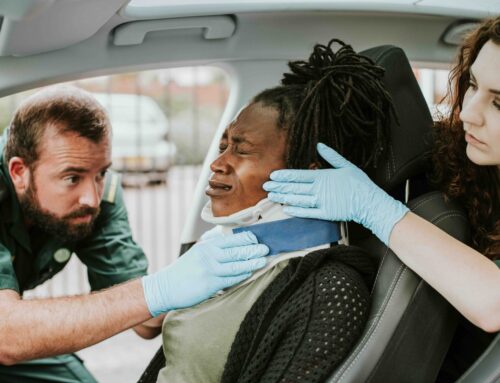A lot of people believe they are proficient multitaskers—but unfortunately, that’s a myth. We humans have a very limited capacity for simultaneous thought. It may seem like we’re paying attention to everything around us while doing several things at once, but what we’re actually doing is rapidly switching focus from one task to another.
A common, but perhaps one of the most dangerous places where people attempt to “multitask” is behind the wheel of a car. Doing any task while driving (using your phone, eating, drinking, fiddling with the stereo, daydreaming…) can be considered distracted driving, and it can put you and others at serious risk.
Types of Distracted Driving
There are three different types of distracted driving, and they include:
- Manual distractions: taking your hands off the wheel.
- Visual distractions: taking your eyes off the road or using short focus instead of scanning the road ahead.
- Cognitive distractions: when you’re not mentally focused on driving.
Distracted driving forces your mind to choose between driving and whatever else you’re trying to accomplish. It doesn’t matter how experienced a driver is. Between other cars, unpredictable drivers, curves and turns on the road, and many other constantly changing obstacles, losing focus while driving, even briefly, increases the risk of an accident.
Examples of Distracted Driving
- Manual distractions:
- Eating or drinking.
- Smoking.
- Adjusting a child’s seatbelt.
- Searching through a bag or purse.
- Manipulating the controls in your car, like stereo or HVAC.
- Typing on a phone.
- Visual distractions:
- Looking for items in a bag or on the floor of your car.
- Checking GPS maps and directions.
- Taking in the view or watching other vehicles.
- Applying makeup or personal grooming.
- Reading or looking at something on a phone.
- Cognitive distractions include:
- Talking on the phone or to another passenger.
- Thinking about something that is upsetting.
- Road rage.
- Daydreaming.
- Being under the influence of drugs and/or alcohol.
Some distractions can be attributed to more than one category, but they all increase the risk of getting into a wreck. Cell phones contribute significantly to distracted driving. They can cause all three types of distractions individually as well as simultaneously.
If you’re not aware of just how distracting phones can be, think of this: While driving, would you ever risk closing your eyes for 5 seconds straight? Probably not—but sending or reading a text message takes your eyes off the road for an average of 5 seconds. At 55 mph, that’s like driving the length of a football field blindfolded.
Tips to Avoid Being Distracted
There are a lot of different distractions that can pull your attention from driving, and people do plenty of them without realizing it. There are preemptive measures you can take to help prevent being distracted.
- Stay calm
- Anxiety and stress are distracting. Take deep breaths and focus on the road.
- Don’t argue or get angry. Save the argument for when you’re not driving. Road rage is dangerous even if you don’t act on your anger.
- Pull over
- If you can’t calm down or stay focused, pull over. Take a break and relax until you’re able to give driving your full attention.
- Ask your passengers to help
- If someone is in the car with you, have them change the music or control the temperature, or take a turn driving if you are tired.
- Know your car
- Know the car’s controls before you start driving, especially if the car is new to you or a rental car.
- Make adjustments before you start driving
- Mirrors, seat, steering wheel, and seatbelts should all be adjusted before you start driving.
- Be rested
- If you’re going to be on the road for a while, rest like you would before any difficult task. Caffeine can help but not if you’re too tired.
- Drowsy driving can result in devastating accidents. You might not be aware that you are sleepy, and that only heightens the risk.
- Set up your GPS before you start driving
- Have a good idea of where the destination is, and if you have to readjust your GPS, pull over.
- Stay off your phone
- Put your phone away, and don’t use it until you’re out of the car. Better yet, set up your phone to block notifications while you are driving to resist the urge to even glance at your phone.
- Even hands-free devices like Bluetooth headsets require attention, and that means you are not fully focused on the task of driving.
- If you need to use the phone, do so briefly or pull over.
When you’re behind the wheel of a car, you are responsible for your actions and control of the car. So, before you get behind the wheel, make sure you’re fully prepared for your trip and that you’ve got plenty of rest. If a situation arises where you need to use your hands or focus on anything other than driving, pull over if you can do so safely or wait. No text message or other distraction is worth risking your life over.
The Hines & Wilson Law Firm has more than 50 years of experience with personal injury and road accident claims. We will use our experience and knowledge to get you the compensation you deserve. If you’ve been injured in an accident, contact us. You can call us at (573) 443-4500, our toll-free number (877) 473-4500, or email us info@hineslawfirm.com for a free and confidential consultation about your claim.







